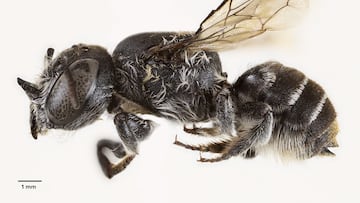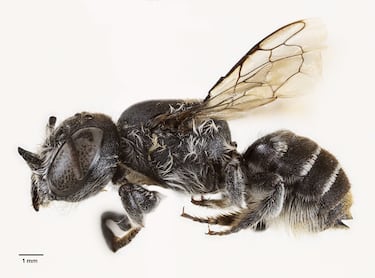Lucifer Bee: Scientists discover new creature with devilish horns in Australia
Australia has a creepy new creature: the Lucifer bee. Scientists discovered it while studying a wildflower.

Australia has a new and rather eerie addition to its vast fauna: the “Lucifer bee.” The species was recently discovered by scientists while studying an endangered wildflower. According to a report published by Curtin University’s School of Molecular and Life Sciences, this new species—Megachile (Hackeriapis) lucifer—has horns “resembling those of the devil,” which inspired its name.
“I discovered the species while studying a rare plant in the Goldfields and noticed this bee visiting both the endangered wildflower and a nearby mallee tree,” explained Dr Kit Prendergast, an associate research fellow and lead author of the study. “The female had these amazing little horns on her face,” she added.
While the word Lucifer originally means “light-bearer,” it has long carried darker associations due to its biblical link to the fallen angel who rebelled against God. Dr Prendergast also revealed that her choice of name was influenced by pop culture.
“I was watching the Netflix series Lucifer, and the name just fit perfectly. Plus, I’m a huge fan of the character, so I didn’t hesitate for a second,” she said.
Because the species was discovered during its repeated visits to an endangered flower, Dr Prendergast believes the bee itself may also be at risk, due to habitat loss and broader threats such as climate change.

Related stories
The discovery of the Lucifer bee marks the first identification of its kind in over 20 years. Dr Prendergast stressed the importance of studying native bees to help protect their habitats and ensure their survival.
Get your game on! Whether you’re into NFL touchdowns, NBA buzzer-beaters, world-class soccer goals, or MLB home runs, our app has it all. Dive into live coverage, expert insights, breaking news, exclusive videos, and more – plus, stay updated on the latest in current affairs and entertainment. Download now for all-access coverage, right at your fingertips – anytime, anywhere.



Complete your personal details to comment